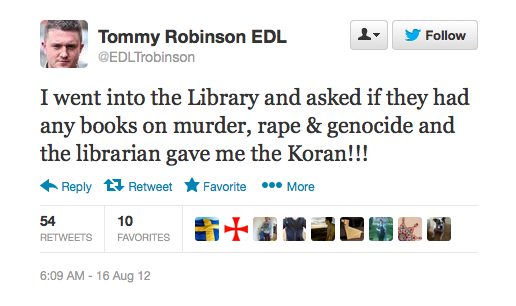In late May, two British men of Nigerian descent hacked to death British soldier Lee Rigby in full view of witnesses in the Woolwich district of London. The assailants, who are awaiting trial, claimed to have avenged the killing of Muslims by British military.
No reasonable person could possibly justify Rigby’s horrific death. No one. That simply goes without saying. The alleged attackers, like any criminal, should and will face justice.
But the immediate response to Rigby’s murder is as much a cause for concern.
First, we saw the media quickly characterize the gruesome butchering as a “terror attack.” While this is not, strictly speaking, describing the attack as an “act of terrorism,” the phraseology is misleading. Some journalists did clearly define terrorism and even acknowledged the role British foreign policy plays in radicalizing young menat home. While we must remain sensitive to the feelings of the Rigby family, it’s important to recognize that murder does not equal terrorism.
| Those looking for a scapegoat for years of failed economic policy appear to be susceptible to a kind of fascism that’s spreading across Europe. |
Here’s the second worrying response.
Stephen Yaxley Lennon (aka Tommy Robinson, pictured), the self-appointed leader of the English Defence League (EDL), began in earnest the task of playing up the narrative that Islam is itself responsible for the crime.
The EDL describes itself as a “street protest movement” but it’s what Americans might call a hate group. It is explicitly anti-immigrant. Its rhetoric is xenophobic. After the Woolwich attack, the EDL organized demonstrations up and down the country to bolster its public image.
But beneath that public image is something sinister.
Not only did the numbers of attacks on Muslims rise dramatically in the wake of the Woolwich murder but EDL protesters were seen giving Nazi salutes in London’s Trafalgar Square. More generally, however, is that those seeking a scapegoat for years of failed economic policy appear to be susceptible to a kind of fascism that’s spreading across Europe. We must recognize that this strain of Islamophobia is part of a global trend that has intensified since Sept. 11, 2001.
Here in Britain, the United Kingdom Independence Party (UKIP), a right-wing party led by Nigel Farage, which recently made massive gains in council elections, has galvanized significant support thanks to its use of anti-immigrant, pro-“European race” rhetoric. UKIP has been quick to distance itself from the EDL, but the EDL explicitly expresses support for UKIP.
But away from the spin, and partisan politics, the reality on the ground reflects the brutal reality of racism and right-wing hysteria currently gripping our communities.
 On June 5, a North London Islamic center was set ablaze in what police are describing as a possible arson. According to press reports, the letters “EDL” were scrawled on the side of the building.
On June 5, a North London Islamic center was set ablaze in what police are describing as a possible arson. According to press reports, the letters “EDL” were scrawled on the side of the building.
Many liberals are calling for a “sensible” conversation about tackling extremism. While any rational person would agree, when will they call for a universal definition of terrorism that doesn’t stigmatize the world’s 2 billion Muslims?
When will they call for a renewed look at Britain’s foreign policy that routinely kills and oppresses Muslims all over the world instead of pretending that this question is an abstract issue, one that is separate from dealing with home-grown extremism?
And exactly what will it take for us to hold our media to account for the way in which its routinely characterizes terrorism as a genetic disposition of Muslims, while other instances, such as the case of white man butchering a seven-month-old baby, which often reflect equally disturbing extremism, don’t seem to merit the same coverage?
To sweep these issues under the carpet is to risk sleepwalking into another catastrophe.
Richard Sudan lives in London. His writing has appeared in The Guardian, The Independent and others publications in the United Kingdom. Follow him at @richardsudan.



0 Comments